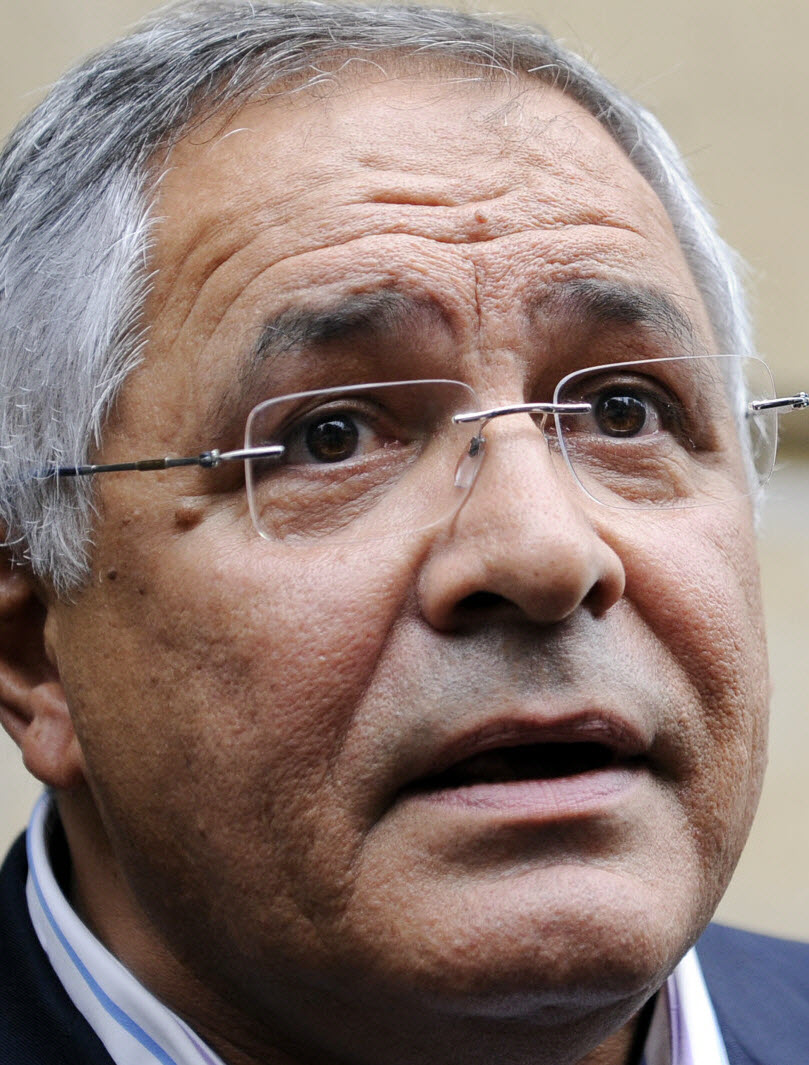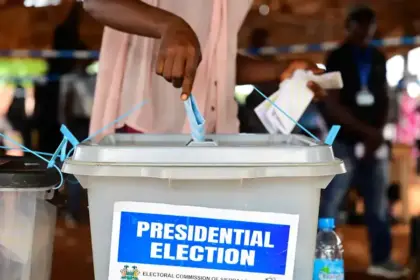Book Review
A new book by the man who filled the “brown envelopes” casts scandalous light on the traffic in bribes between African and French politicians.
Robert Bourgi, the 79-year-old last éminence grise of Françafrique, has revealed all – mostly – in a book about his 40-year career, first as a trusted lieutenant of President Jacques Foccart, and then after inheriting his mantle.
President Charles De Gaulle had appointed Foccart to keep Francophone Africa – by fair means or foul – shackled to the old colonial power, along the way instituting a deep and lasting bond between his successors at the Elysée Palace and their counterparts in Francophone West and Central Africa.
‘Ils savent que je sais tout’ – Ma vie en Françafrique (‘They know I know everything’ – my life in Françafrique), takes the form of a series of interviews with Frédéric Lejeal and is published by Max Milo on 2 October in French, and in English two weeks later. It also contains innumerable notes and documents, such as President Omar Bongo Ondimba’s handwritten list of whom President Jacques Chirac should appoint to which Paris cabinet post.
One gets the impression the juicy anecdotes on offer are only public now because the strategic purpose of Françafrique, is in the past, and the 12-year statute of limitations on bribery now applies to most of these doings.
The personal is political here, as so often among men – almost always men – of the right, Françafrique’s home ground. Foccart and Bourgi’s political love affair was based on Foccart’s closeness to Mahmoud Bourgi, his Franco-Lebanese-Senegalese father, and the devotion of both older men to De Gaulle.
The index is a treasure-trove of anecdotes which will long remain on journalists’ desks for quick reference to the indebtedness of the right-wing French political class to Africans.
Most stories – uncheckable by their nature – reflect favourably on the author, if only on the level of personal honour since the immoral currency of cash, influence and favours is taken as unquestionable.
Originally, Françafrique was the deal De Gaulle made with Francophone potentates in Africa to guarantee France’s independence on the world stage. In exchange for France’s exclusive access to their raw materials, such as Elf Aquitaine’s oil deals, and Areva’s uranium contracts, the French state protected the PREVIEW leaders against democracy or coups d’états, or both and insulated them from international criticism to restore some of the grandeur France had lost in World War II.
With an independent oil supply and nuclear bombs, France stood tall and steered an independent course throughout the Cold War, unlike the United Kingdom, Germany and Japan.
But soon, the occupants of the Elysée Palace found themselves dependent on the cash payments by the African leaders, Bourgi citing the roughly US$10 million Jacques Chirac received for each of the presidential elections he won, in 1995 and 2002. Chirac was the biggest beneficiary of African cash at the Elysée, most from Bongo.
And yet, some interesting episodes in France’s relations with Africa escape mention, such as Jean-Bedel Bokassa’s links with President Valery Giscard d’Estaing, and Paris’s relations with Rwanda and Burundi.
The personal governs Bourgi’s view, as he ascribes the demise of Françafrique less to globalisation and the end of the Cold War than to arrogance and ingratitude. In 2009 Chirac’s failure to receive Bongo prompted the dying Gabon president to persuade Bourgi to reveal all the secrets after he died.
Bourgi began to honour that pledge in 2011 when he made public the funding Chirac and Dominique de Villepin, Chirac’s prime minister, he claimed had received from Bongo, which they denied. The current book, he says, fulfils his promise to the man who used to call him ‘fiston’ (‘son’). It also details the contributions made by presidents Laurent Gbagbo, Denis Sassou-Nguesso and Blaise Compaoré to the Elysée.
The theme of ingratitude recurs when Bourgi recalls Zaire’s President Mobutu Sese Seko’s plea in 1996, when his armed forces were folding before Laurent-Désiré Kabila’s rebels and their Ugandan and Rwandan backers, for 1,000 men from the Service Action, the special forces, Foccart had created for France’s foreign intelligence service, to fly in and neutralise the threat.
Foccart pleaded that the United States backed Kabila; how could France lose such a vast Francophone country? Chirac passed the plea to his prime minister, Alain Juppé, who refused to authorise the action.
When Foccart died in 1997, Chirac called Bourgi to say that a ‘clean-up’ was needed at Foccart’s residences to remove all compromising evidence.
Although both his homes were ringed with police Bourgi managed to fillet Foccart’s massive collection of data and documents for anything compromising to Chirac. No doubt for potential insurance purposes Foccart had hoarded receipts, documents, letters, telegrams, airline tickets and other proof of his work.
In support of his plea to be seen as a man of honour, Bourgi even says that Foccart had learned of a plot against Pierre Péan, the indefatigable investigative journalist who made a career of exposing the excesses of Françafrique and corruption in France’s right-wing political parties – often in deep isolation.
‘Something is being prepared against him,’ he says Foccart told him. ‘Warn him.’ Bourgi says he did, asking Péan to pull his punches in his famous book, Affaires Africaines. There was a ‘contract’ on Péan, Bourgi says he told him, but the journalist did not flinch. Perhaps Péan might have dubbed this approach an attempt to intimidate him, but we cannot know as he died in 2019.
Some of the narrative approaches the modern political era. Bourgi was close to the conservative politician François Fillon until they fell out disastrously over what Bourgi saw as his arrogance and dishonesty. While Fillon was campaigning for the presidency in 2017 and making much of his clean hands, Bourgi told the media that he had bought two expensive suits for him, enough to finish him off and clear the field for Emmanuel Macron’s bid for the top job.
Sometimes Bourgi’s mask of honour and probity slips, as when he remarks on his advice to the elderly President Abdoulaye Wade of Senegal, and his son Karim Wade, to keep the old man out of the 2012 election and give up the attempt to finesse for himself a third term of office (AC Vol 52 No 13, One day, son). The advice was spurned and they fell out.
He does not relate what Africa Confidential reported at the time, that Karim phoned Bourgi on 27 June 2011 as rioting raged in Dakar, pleading with the man we dubbed the ‘uncrowned king of Françafrique’ to organise a French military intervention to save their bacon (AC Vol 52 No 15, Don’t call us). But Bourgi turned him down and repeated the whole story to Radio France Internationale, humiliating Karim.
More a reference book for historians and journalists than a cohesive biography, Bourgi’s fascinating dives into the depths of French political corruption need to be balanced against the impossibility of checking much of it, and the beneficent air in which it portrays its main character.
Africa Confidential 2nd October 2024
![]()








